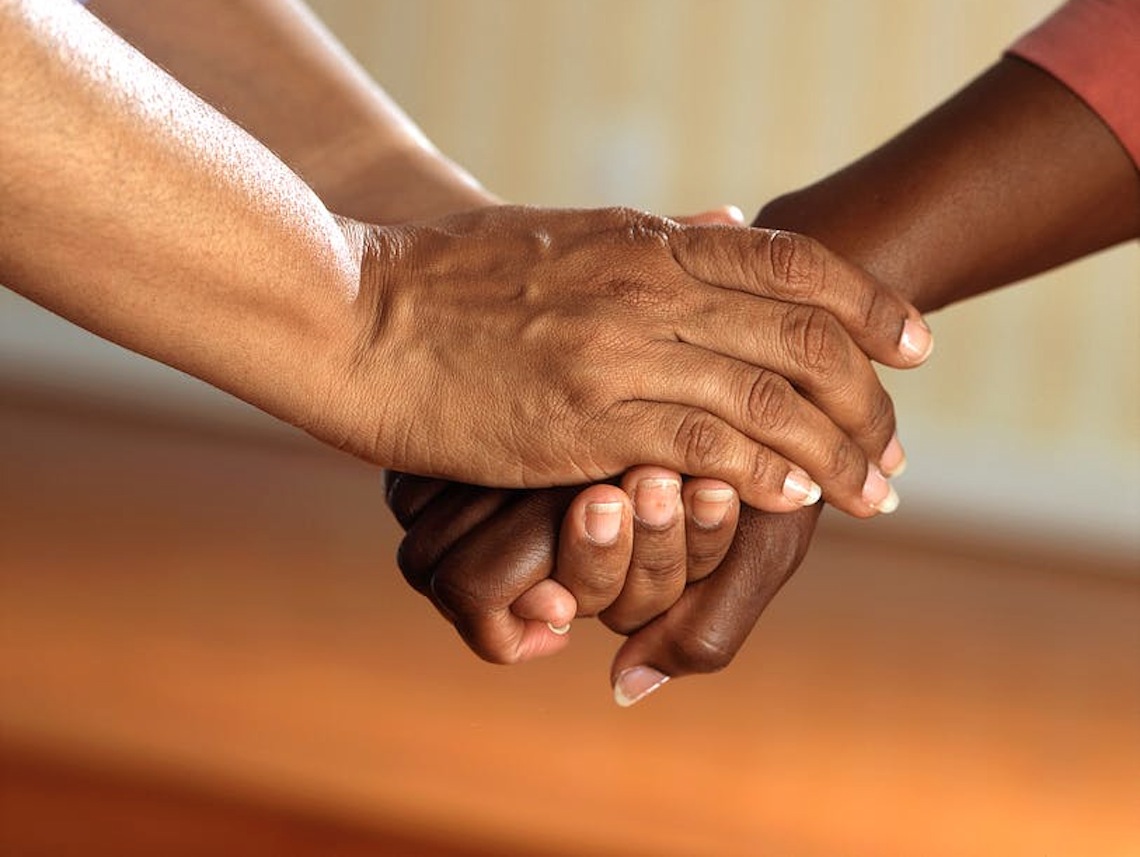 Pexels
Pexels I worry that I don’t think about my father enough. He died 20 years ago and his presence doesn’t haunt me. I don’t talk to him when I’m stuck in traffic.
But a picture of him sits on my desk, taken at the beach circa 1975. His hairy chest is fully exposed, the gold chai he always wore embedded in the hair.
He’s looking right into the camera. “You can do it, sweetheart,” I’ve decided he’s saying from behind those tinted lenses set in aviator frames.
It’s not an accident that this picture sits on the desk where I write.
Victor, given this name by my grandmother because he was born on Armistice Day 1918, thought I could do anything. He once left me in the driver’s seat of his car at the corner of Lexington Avenue and 38th Street in New York, a month after I passed my driving test.
“Go park,” he said, getting out and slamming the door.
I guess I’m lucky this was his legacy to me, the sense that if I put my mind to something, I can figure it out. It’s in times when my confidence is flailing that I beckon his memory. And also whenever someone orders a bagel “with the insides taken out.”
I also hear his voice clearly whenever anyone uses the word rachmones, which, granted, is almost never. But sometimes, when I am feeling particularly intolerant, “judgy,” if you will, I don’t even have to hear a person say the word for an old Jewish man to whisper in my ear, “Sweetheart, have a little rachmones.”
For those for whom Yiddish is not a second language, or even a third or fourth, rachmones is defined by essentially four words: mercy, compassion, forgiveness and empathy. Looking back on my youth, the fact that my father said this to me repeatedly suggests that I wasn’t the warmest child on the block.
In my defense, I was not a golden-haired Cinderella, was not particularly athletic, and very few children played the flute as badly as I did. What I did have was smarts. Maybe it was spending my formative years in New York City, with its you-snooze-you-lose pace, but I was very quick. And I didn’t understand if you weren’t. I was impatient, intolerant and intense. Rachmones was for suckers.
What’s great about life, or my life anyway, is how little my superior brain did to make me happy; to build meaningful relationships, to listen, to help me connect with people in a way that made me feel less lonely at the end of the day. You know what does this better than getting A’s? Rachmones.
Vic never went to college, a fact that always embarrassed him. According to family lore, he sold apples during the Great Depression; after that, he sold clothes, then finally real estate. He wasn’t a book-smart man. Given the absence of wealth in his early life, his parents’ divorce, his Eastern European bouts of depression, I’ll admit no one ever accused my father of being happy. But he cared deeply for his family and friends, who gave him great joy, and that caring nature most definitely enabled him to practice what he preached to me.
The other night, I saw a terrible show; I had paid a babysitter so I could see it; and I got stuck in parking lot traffic going home. That’s the holy trinity of misery for me. I was out with my husband, and I was fuming. He turned up the radio. Listening to KDAY-FM was far more enjoyable than my stewing in silence.
Somehow, above the din of the blaring rhymes on the radio, I heard that little, old Jewish man voice. “Sweetheart … ” And something in my mind shifted. These people in the show had an idea and they saw it through and it wasn’t perfect, but where was my compassion, my empathy for how hard it is to create anything?
I took a deep breath and relaxed a little. My husband turned down the music and we found something to laugh about. Shon fartik. Translation: “pretty ending,” another of my father’s favorite Yiddish expressions.
Here’s what I’m suggesting, and not in a Pollyanna or Rifka-Anna kind of way: Why don’t we all take “The Rachmones Challenge”?
I know we can all think of at least 10 million to 59.8 million people who should do this first, but, unfortunately, we have no control over them. For the sake of finding a little more peace in our days, against very serious odds, maybe we can try to find one or two interactions during which we take a second to breathe and think about mercy, compassion, forgiveness and empathy.
The Rachmones Challenge will not raise money. It will not clean out your colon. But if you commit to it, it may just deliver to you, and the people around you, something neither of these goals can: a soul-nurturing dose of humanity.
Dani Klein Modisett is a comic and writer, most recently of the book “Take My Spouse, Please.”





















 More news and opinions than at a Shabbat dinner, right in your inbox.
More news and opinions than at a Shabbat dinner, right in your inbox.